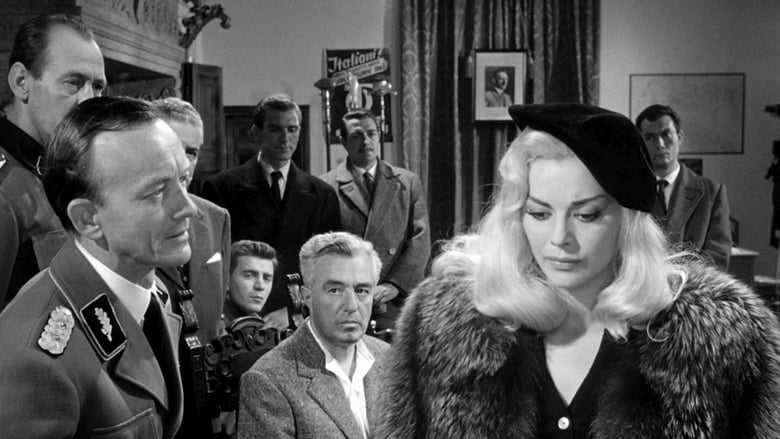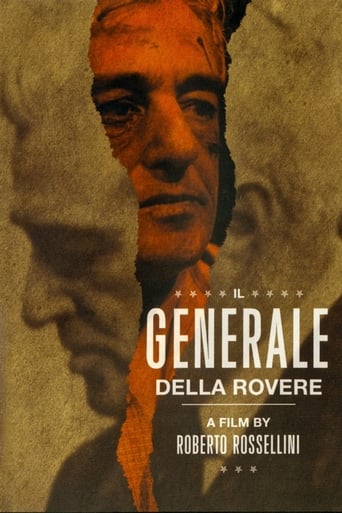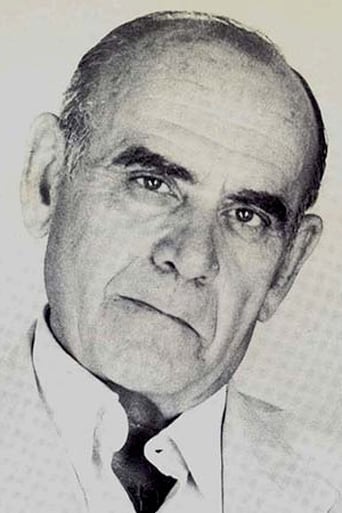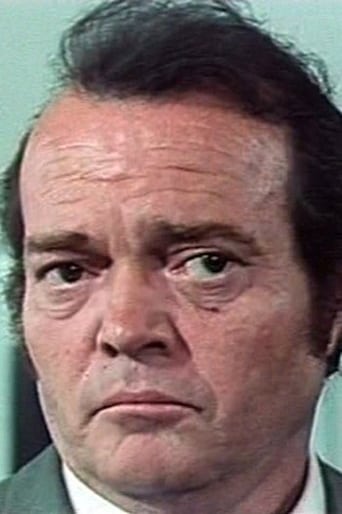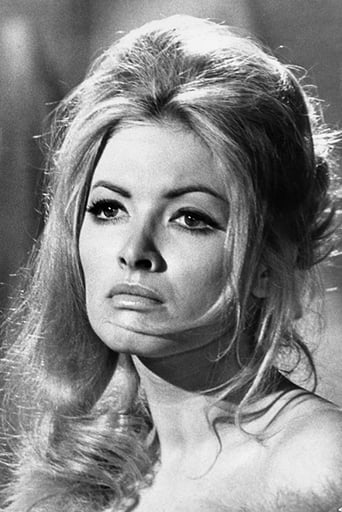The Gestapo forces con man Victorio Bardone to impersonate a dead partisan general in order to extract information from his fellow inmates.
Similar titles


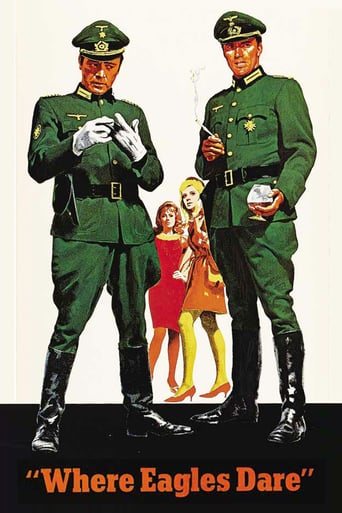
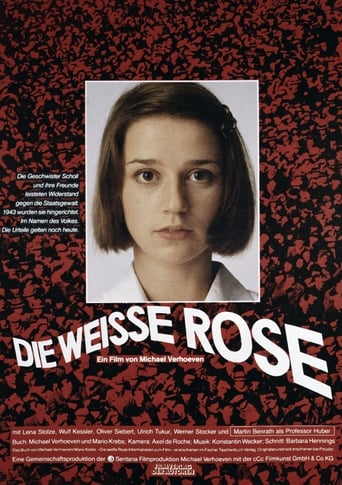
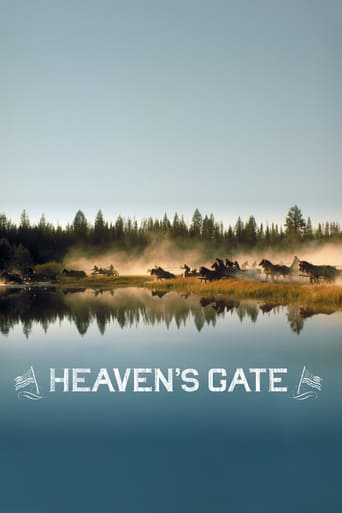
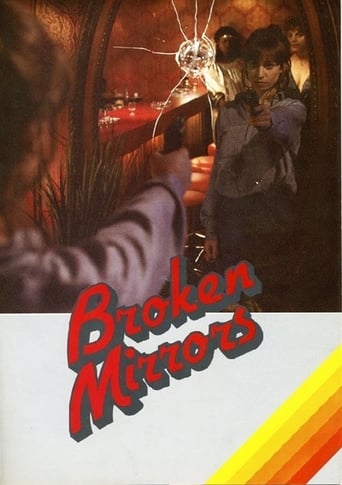



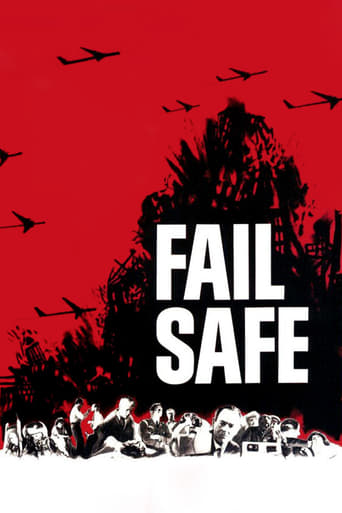
Reviews
This is a tender, generous movie that likes its characters and presents them as real people, full of flaws and strengths.
The plot isn't so bad, but the pace of storytelling is too slow which makes people bored. Certain moments are so obvious and unnecessary for the main plot. I would've fast-forwarded those moments if it was an online streaming. The ending looks like implying a sequel, not sure if this movie will get one
The story, direction, characters, and writing/dialogue is akin to taking a tranquilizer shot to the neck, but everything else was so well done.
This is a dark and sometimes deeply uncomfortable drama
The story of the film concerns "Colonelo" Bertone a self-appointed community intercessor and thief in World War II Italy, passing on bribes from families to the Germans in order to help their sons (or gambling away the bribes and eating their food parcels). It's definitely a film of two halves, the first half of the movie to me feeling decidedly Pasolinian. Bertone, though undoubtedly a scoundrel does his best to keep people happy, is a character that spreads a certain amount of charm in the world. For some people who have never known love or had anyone to look up to, he provides a show, his charisma is like ambrosia. Having been brought up with Protestant vales it has been a revelation to me in life how people value charm as most precious, a Veblen good, more prized when it is most demanding, how a charming person is valued above all others even when they live in a moral vacuum.The second half of the movie is, in structure, a more conventional prison movie where Bertone, working for the Germans in order to save his skin, becomes an impostor pretending to be Generale della Rovere. Whilst pretending to be the general he begins to assume many of the general's characteristics. This part of the film is very patriotic, and contains a beautiful fresco of Italian cities on the prison wall. The ideology of this part of the movie is all about recognising the efforts of the largely Communist, Partito d'Azione and Socialist partisan resistance, bodies who were largely excluded from the post-fascist Italian government, which was dominated by the Christian Democrats, who many felt to have been tainted by association with fascism.Pontecorvo's movie Kapò was released contemporaneously, and features a similarly caricatured version of the Teutonic gaoler and slightly ebullient view of World War II, that would become refined in future decades. That said, Il Generale della Rovere, is undoubtedly a masterpiece.
As great as Open City was, I think I like this one better because of its element of redemption. Also, I must confess I like that Rossellini has largely dispensed with his trademark neo-realism in favor of a more conventional narrative style. Instead of being on location, in the streets, most of his shots here are on sets, once even resorting to rather cheesy process shots. Otherwise, his sets are so well done, that I assumed, for example, that a cavernous prison block was real rather than constructed. Rossellini has thus created a play without being stagy. And the acting! Of course, this is Vittorio De Sica's movie. De Sica was larger than life, and Rossellini worked at governing the bombast. In fact, De Sica's distinguished stature -- silver mane and powerful build -- kept me from getting right into his Bardone character as a weasel. But perhaps it was that stature that allowed Bardone to carry out his scams. And it certainly helped the plausibility of someone like Bardone's becoming someone like Il Generale.Neglected in the reviews is the wonderful performance of Hannes Messemer as Colonel Müller. Another reviewer says that Müller had "fangs". In fact, Rossellini makes an effort to reveal how much Müller loathes the ruthless part of his work, first seeking to prevent reprisals, then, when he is alone, expressing frank distaste after being overruled by German command. Even when he is saddled with the cliché line, "We have ways of making you talk," he is far from a caricature. Then we are brought back to the reality of Müller's SS uniform by his remorseless treatment of Jews.Concerning the controversy... Italy imposed stringent political correctness on discussion of Italy's conduct in World War II. As the excellent documentary in the Criterion Edition points out, Rossellini could not have made Generale della Rovere ten years earlier, when criticism of Italians on the home front was a punishable offense. The story Italians told about themselves depended on which way the wind was blowing. After the war, everybody was an anti-fascist. (Just like the French, as revealed by Marcel Ophül's great documentary The Sorrow and the Pity.) A climactic scene in Generale della Rovere occurs when one who sought during the occupation to go along to get along -- not Bardone, who by now had changed -- was brought to book.An interesting note from the Criterion documentary: This is a true story, based on the real-life Bardone, named Bertone, who impersonated a Generale della Rovere. The story was first told as a novel, by a prison-mate of Bertone's, Indro Montanelli, who escaped. Though there is torture by the Germans in the movie, Montanelli says that the Germans never used torture, only the Italians. To me this was a shocker, making me wonder if, despite the monumental criminality of the Germans in World War II, the stock scenes we grow up with, of the "We have ways of making you talk" variety, are exaggerations and if so, to what degree.Playing the impostor, even in the face of death, is a familiar story. Dickens' Tale of Two Cities comes to mind. Arthur Miller's Incident at Vichy is a similar tale. In fact, I see Kurosawa's Kagemusha as a retelling of Generale della Rovere, though Kurosawa strenuously denied it. Perhaps becoming the man you impersonate is simply a universal theme.Anyway, this one's a masterpiece. See it!
I have little to add to what the first two commentators have written.Rossellini has a penchant for melodrama and rhetoric, but, fortunately, he keeps this tendency for the most part in check in this case. This film is dry and sober, and yet touching in the way it describes the transformation of a petty swindler, who manages to survive by cheating those who are unlucky enough to have their loved ones arrested by the Nazis and try everything they can in order to save them from execution or deportation to Germany, into a man who realises that, when faced with the choice between right and wrong, he ultimately has to take sides. And, when the time comes, he will do what his conscience will tell him to do, even though this will mean his own death.Vittorio De Sica is great, as usual, in this dramatic role as well as in his comic ones. Non-Italians may find interesting the fact that Vittorio De Sica was himself an unrepentant gambler in real life as well, to the point that, if I'm not mistaken, his dead left his family saddled with debts. The film also gives a good idea of what life was like for ordinary Italians under the German occupation between 1943 and 1945. Many had to make difficult choices in a confused situation, and they reacted differently. Some took sides and risks, on both sides; others tried to survive. Some came to accept humiliating compromises in order to save their loved ones from death (consider the character of Borghesio, the old, retired lawyer who mortgages his house in order to gather the money that is needed in order to buy the German officer responsible for choosing the prisoners who are bound to be sent to Germany as forced labourers, which often meant death, or of Ms Fassio, the wife who ends up humiliating herself in a desperate and vain attempt to rescue his husband and is torn between her inner contempt for the Nazis and the urge to do everything possible to save his husband). Some others tried to profit from the situation. Some others made different choices in different moments, sometimes cynical parasites, sometimes heroes. However, everyone faced dilemmas, often about their very survival.
Vittorio de Sica stars as a petty gambler and con artist near the end of the Second World War. His gambling losses are so bad that he has to swindle friends for money; oftentimes he does so with the promise of freeing imprisoned loved ones (and sometimes he even succeeds at doing so). One swindle goes wrong, and the victim informs the Nazis of what De Sica is doing. Instead of simply imprisoning him, they make a deal: if in prison he poses as General della Rovere, who was killed in an escape attempt, and root out a certain partisan leader, they will pay him off and ship him to Switzerland. De Sica is no great man, but he is also no spy. But, initially, he does what the Nazis tell him to do. This film should probably be much better than it is, but it just lacks the passion of Rossellini's earlier films. Sure, they were overly melodramatic, but I don't think the way to fix them is flatten out all the emotions of the film. Rossellini did make a nearly perfect film after his strictly neorealistic period in Stromboli, and General della Rovere, a decade later, is a huge step in the wrong direction. There are a few excellent scenes, but nowhere near enough. It helps that it ends so well. It certainly hinders the project that the whole swindling part of the film lasts for almost half the film, at around an hour. De Sica's character isn't very consistent between the two halves, either. Blame that on the script, though, because De Sica is generally great throughout the entire film. Sandra Milo, who would later co-star in Fellini's 8½ and Juliette of the Spirits, has a small role. 6/10.
Top Streaming Movies











